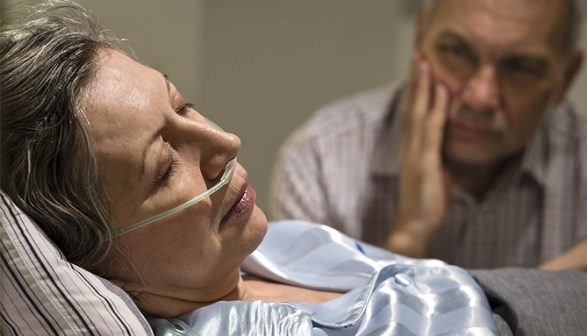Once killing is defined as an acceptable response to suffering, there are few natural stopping points in the steady expansion of legalized euthanasia or assisted suicide. Requiring a diagnosed medical condition still retains some heft. But it isn’t logical, since the ultimate issue is suffering, not its causes.
These days, even that boundary line is growing more blurry — particularly in countries that have fully swallowed the euthanasia hemlock — which is why a new study published in Population Health is cause for alarm. It appears to be an early gambit to remove the medical requirement from the Dutch law altogether.
The study finds that some Dutch people commit suicide “in the absence of a medical condition.” Obviously. But if euthanasia is merely a medical “treatment,” wouldn’t that finding call for increased efforts at prevention in such cases?
Ah, but that’s not how this issue works. Once in for a penny, in for a pound, because euthanasia changes mindsets to think of death as a positive when it is wanted (and even if it isn’t in some cases). The sheer force of gravity unleashed by such laws pushes society logically toward accepting a process of continually expanding access to death for nearly any nontransitory reason. In other words, suicide becomes a liberty issue.
LifeNews is now on GETTR. Please follow us for the latest pro-life news
That shift in thinking is evident in the study’s discussion. Note how the authors of the study conclude their findings (my emphasis):
Estimating the frequency of suicide or intentionally ending one’s own life is influenced by definitions and information sources. Few people who had intentionally ended their own life requested PAD [physician assisted death], especially those suffering from solely psychiatric diseases and those without a medical condition. Possible explanations may be the wish to take one’s own responsibility, a disturbed relationship with one’s own physician, the fear of provisional detention or an awareness of patients about the (in)conceivability of physicians to grant requests for PAD under the Dutch PAD law in certain situations.
PAD in the Netherlands is embedded in the medical domain as it is presently understood in Dutch law. This raises the question how to address the desire to die from people whose wish to intentionally end their own life is not rooted in a medical condition and therefore fall outside the medical framework of assistance in dying.
“How to address the desire to die” — posed as a question — sure seems like an invitation for authorities to begin thinking about removing the requirement of a medical condition as a predicate to being euthanized.
Germany is already there, by the way. A few years ago the country’s highest court conjured a fundamental constitutional right to suicide — and to give or receive assistance therein — without regard to illness, or indeed, any reason whatsoever. The court ruled (again, my emphasis):
The right to a self-determined death is not limited to situations defined by external causes like serious or incurable illnesses, nor does it only apply in certain stages of life or illness. Rather, this right is guaranteed in all stages of a person’s existence. . . .
The individual’s decision to end their own life, based on how they personally define quality of life and a meaningful existence, eludes any evaluation on the basis of general values, religious dogmas, societal norms for dealing with life and death, or consideration of objective rationality. It is thus not incumbent upon the individual to further explain or justify their decision; rather their decision must, in principle, be respected by state and society as an act of self-determination.
In other words: death on demand.
The Dutch are heading there too, as are other Western society’s — including ours — just some more quickly and others more slowly. We are all sinking into nihilism quick sand. Unless we change our collective mindset, it is only a matter of “when.”
LifeNews.com Note: Wesley J. Smith, J.D., is a special consultant to the Center for Bioethics and Culture and a bioethics attorney who blogs at Human Exeptionalism.








